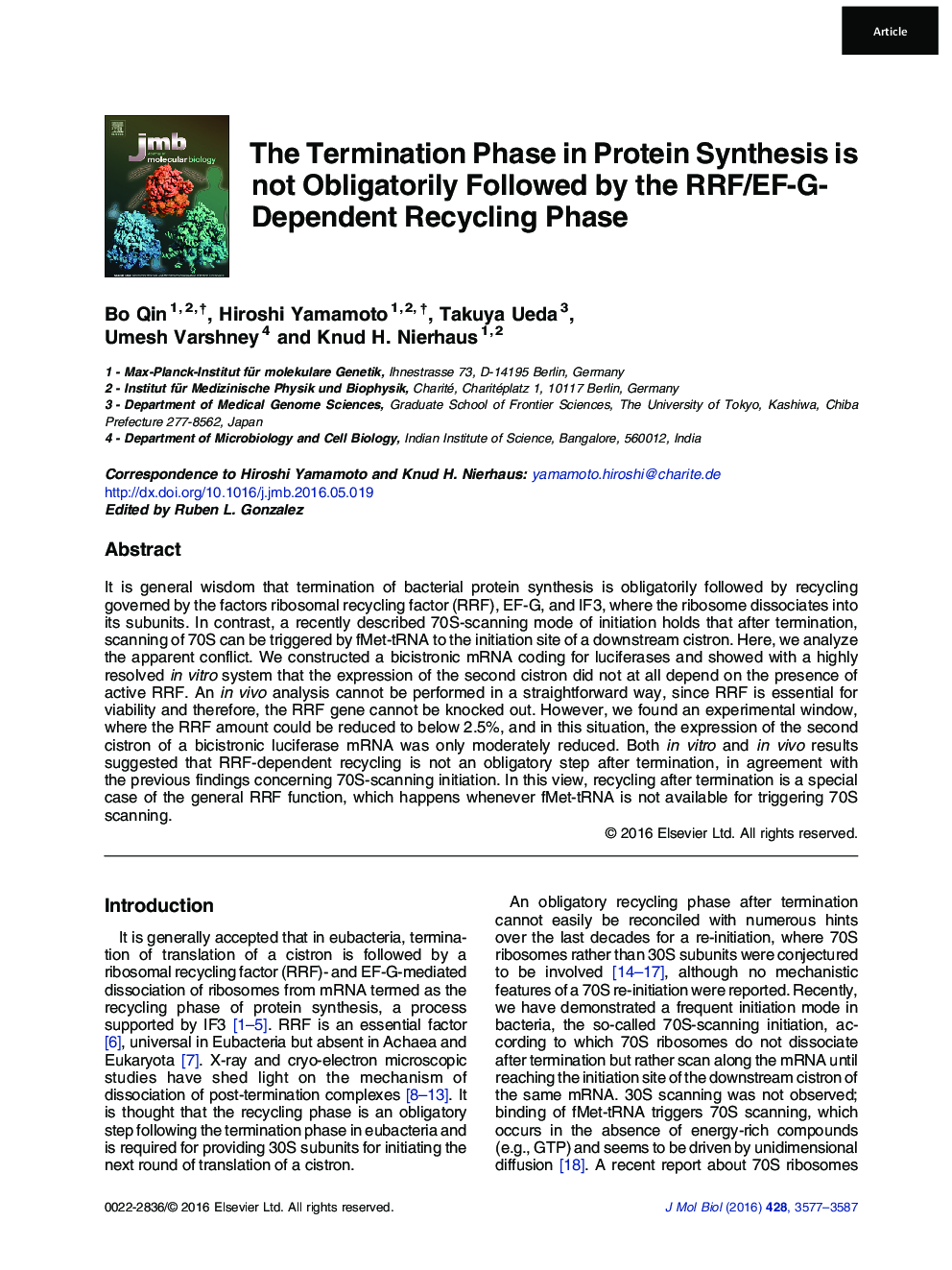| کد مقاله | کد نشریه | سال انتشار | مقاله انگلیسی | نسخه تمام متن |
|---|---|---|---|---|
| 2184222 | 1402116 | 2016 | 11 صفحه PDF | دانلود رایگان |

• The recycling phase is not obligatorily following termination.
• The translation of the second cistron of an mRNA occurs independent of RRF.
• The essential character of RRF is not only due to its involvement in recycling.
It is general wisdom that termination of bacterial protein synthesis is obligatorily followed by recycling governed by the factors ribosomal recycling factor (RRF), EF-G, and IF3, where the ribosome dissociates into its subunits. In contrast, a recently described 70S-scanning mode of initiation holds that after termination, scanning of 70S can be triggered by fMet-tRNA to the initiation site of a downstream cistron. Here, we analyze the apparent conflict. We constructed a bicistronic mRNA coding for luciferases and showed with a highly resolved in vitro system that the expression of the second cistron did not at all depend on the presence of active RRF. An in vivo analysis cannot be performed in a straightforward way, since RRF is essential for viability and therefore, the RRF gene cannot be knocked out. However, we found an experimental window, where the RRF amount could be reduced to below 2.5%, and in this situation, the expression of the second cistron of a bicistronic luciferase mRNA was only moderately reduced. Both in vitro and in vivo results suggested that RRF-dependent recycling is not an obligatory step after termination, in agreement with the previous findings concerning 70S-scanning initiation. In this view, recycling after termination is a special case of the general RRF function, which happens whenever fMet-tRNA is not available for triggering 70S scanning.
Graphical AbstractIt is generally accepted that essential RRF is an element of the recycling phase. We present that recycling is not an obligatory phase following termination. The second role of RRF within the functional triad RRF/EF-G
• GTP/IF3 seems to be resolving stalled ribosomes regardless whether there is a sense or a stop codon at the ribosomal A site.Figure optionsDownload high-quality image (107 K)Download as PowerPoint slide
Journal: Journal of Molecular Biology - Volume 428, Issue 18, 11 September 2016, Pages 3577–3587